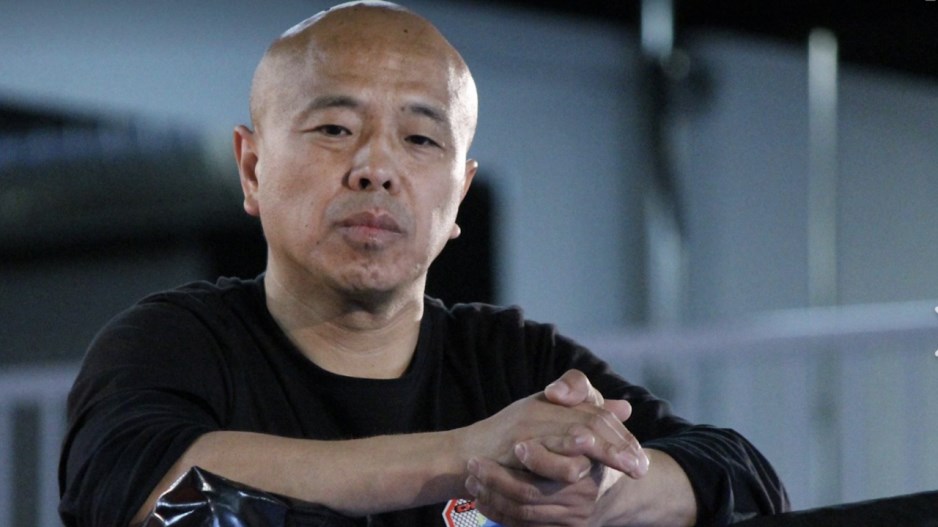High rollers with known connections to loan sharks continued to deposit vast sums of cash at casino cages and were allowed to “bend” anti-money laundering laws up until 2015, the Commission of Inquiry into Money Laundering in B.C. heard Wednesday.
Daryl Tottenham, manager of the British Columbia Lottery Corporation (BCLC) anti-money laundering (AML) programs, explained how casino investigators were handling routine six-figure buy-ins with small bills, particularly between 2011 and 2016.
Tottenham left the New Westminster Police Department in 2011 to become a BCLC casino investigator. Shortly thereafter, he said, “It was clear to us there was only one major [criminal] organization working” the casino VIP rooms.
Tottenham told of a “cash facilitation network” whose suspected leader was convicted drug trafficker Kwok Chung Tam, a Chinese national, described by police as the “boss” of Paul King Jin.
Jin is a high-profile alleged money launderer whose criminal charges were dropped by federal Crown prosecutors in November 2018.
The E-Pirate investigation by the RCMP Federal Serious and Organized Crime unit into Jin’s network was the only money laundering investigation in B.C. that led to charges during the period in question.
Tam was convicted of trafficking marijuana in 2010. Global News has reported Tam’s alleged ties to Chinese organized crime networks, which have been denied. Tam was charged with heroin trafficking in 2000, but charges were dropped due to issues with evidence. Tam was subject to deportation proceedings in 2000 that were stayed and it is not clear if he remains in Canada.
Tottenham said in 2012 casino investigators began to believe Chinese VIP patrons were using these local, underground banks, also known as money service businesses, that supplied the Chinese gamblers with alleged drug money as a means to skirt capital controls in China. The gamblers would then deposit money into linked bank accounts back in China.
Tottenham told Commissioner Austin Cullen, via examination by commission counsel Alison Latimer, how initially investigators believed two or more illicit cash networks were supplying casino high rollers, but said he later began seeing “crossover” and “eventually I came to the absolute conclusion [Tam] was in fact Paul Jin’s boss.”
Jin recently escaped being killed in a Richmond sushi restaurant on September 19 when a person opened fire on his table. But Jin’s associate and alleged underground bank operator Jian Jun Zhu, was killed.
Zhu’s underground bank Silver International was central to the E-Pirate investigation. Each year hundreds of millions of dollars of cash were routinely emptied from suitcases onto the floors of a Richmond office, to be counted by Zhu and his spouse Caixuan Qin, for the purposes of money laundering, according to allegations documented in court by B.C.’s director of civil forfeiture.
Tottenham said Jin’s clients/casino patrons were screened for sources of wealth, and if a gambler could provide adequate proof of wealth then the bags of money — now suspected to be profits from Vancouver’s opioid overdose death emergency — were accepted.
“I was concerned at the time the money was suspicious and may be proceeds of crime,” said Tottenham.
But like so many other investigators, many of whom were retired police officers, Tottenham said he allowed the cash buy-ins because there was no concrete proof the money was illicit.
In fact, even after being banned from BCLC sites in 2012, Jin was known, or suspected, to have continued to feed gamblers vast sums of cash outside of casinos.
Casinos and the BCLC would end up putting conditions on many of Jin’s customers by 2015, said Tottenham.
The commission heard how between June and July of 2015, River Rock Casino and Resort recorded 145 suspicious cash transactions, of which 41 were parking lot deliveries, including 13 suspected to be associated with Jin.
Tottenham told of how the “top dog” gambler was a man named Jia Gui Gao, who in October 2014 was believed to have been supplied $300,000 by Jin in a casino parking lot. On another occasion Gao, bought in with $1.1 million over two days, including $800,000 in $20 bills.
On another occasion, Gao walked away from a casino with unsourced chips and returned to cash them out, which violated AML laws.
“[The chips] should not have been cashed out,” said Tottenham, in describing a possible instance of “refining” whereby small bills are turned into larger ones.
Latimer focused much of her questions on how casino managers had long expressed concerns about investigators getting too close to these VIP gamblers, as it would impact revenue — a matter Tottenham conceded.
Tottenham described how different operators pined for these VIPs and how his supervisors instructed him and others to stop interviewing them.
“If they’re losing business and going to other casinos that would cause them a lot of angst and that was the concern,” said Tottenham.
Latimer brought up instances of BCLC staff consulting first with the casinos when regulatory action was to take place on casino floors.
“It would be fair to say we recognized they run a business and we wanted to allow the service providers to deal with the issues we wanted to deal with,” said Tottenham.




